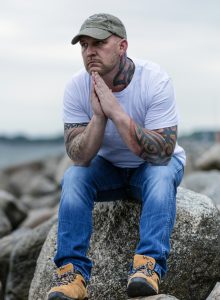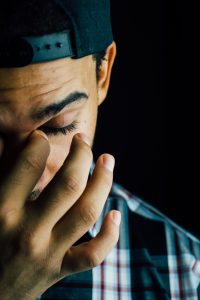When we talk about domestic abuse, most people think about women being the victims, and men the abusers. And in the majority of cases, this is true. However, more than 40% of domestic abuse victims are male. In fact, it is estimated that 1 in 6 men will experience domestic abuse in their lifetime. Many male victims of abuse don’t know where to turn for help, so can be stuck in their abuse or end up homeless. However, there are some refuges that support and house male survivors of abuse.
Over the past year, we have been gifting tablet computers to abuse refuges around the country. As part of this work, we gave some tablets to the You Trust, which supports male victims of domestic abuse. In this week’s blog, one of the Domestic Violence and Abuse Workers there about his work. He describes the different forms of abuse that men experience, how he assists them in moving on from it, and why the tablets are helpful.

Abuse by a female partner
“Males find it harder to ask for support if they are being abused by a female partner. They often feel that they would not be believed, would be laughed at, or that it’s a slight on their masculinity. It takes time to win their trust, and to show that no one is judging or blaming them. We do this through one-to-one work via pattern changing sessions and recovery toolkit sessions.
These are all available online, so having tablets means we can go out for coffee or somewhere where no one else knows what we’re doing. It’s also important to be able to access support groups online (on Facebook, etc) as this shows they are not the only ones going through this.”

Abuse by parents
“We support males who are being abused by their parents. These are younger men who have no experience of life outside the family home. With this group we talk through their experiences and help them understand what a good relationship is like. It’s important to try and break the cycle and show how the behaviour of the parents is the wrong way to treat others. We also give them the skills and ability to live independently.
We have just started a new course that looks at Adverse Childhood experiences, how these can affect people in later life and how we can reverse the negative effects. Keeping in touch with peers [in person and online] is so important to stopping teenagers going back to the family home.”
Abuse within same sex relationships

“More and more males are coming from same sex relationships who are suffering from domestic violence. Again, it’s about teaching them what abuse is and supporting them back into independent living. We do this by showing them what healthy relationships look like, and giving them the tools to form them.”
Honour-based violence
“Another group we support is males (and couples) fleeing honour-based violence. Safety and security is the primary support need. We will support them into getting new identities and a new life.”
How tablets help
“In all the above we use the Tablets for all the relevant form filling and the courses. The clients can use them to keep in touch with their support network, join support groups, and keep in touch with the world. All of this stops their feelings of isolation.”

